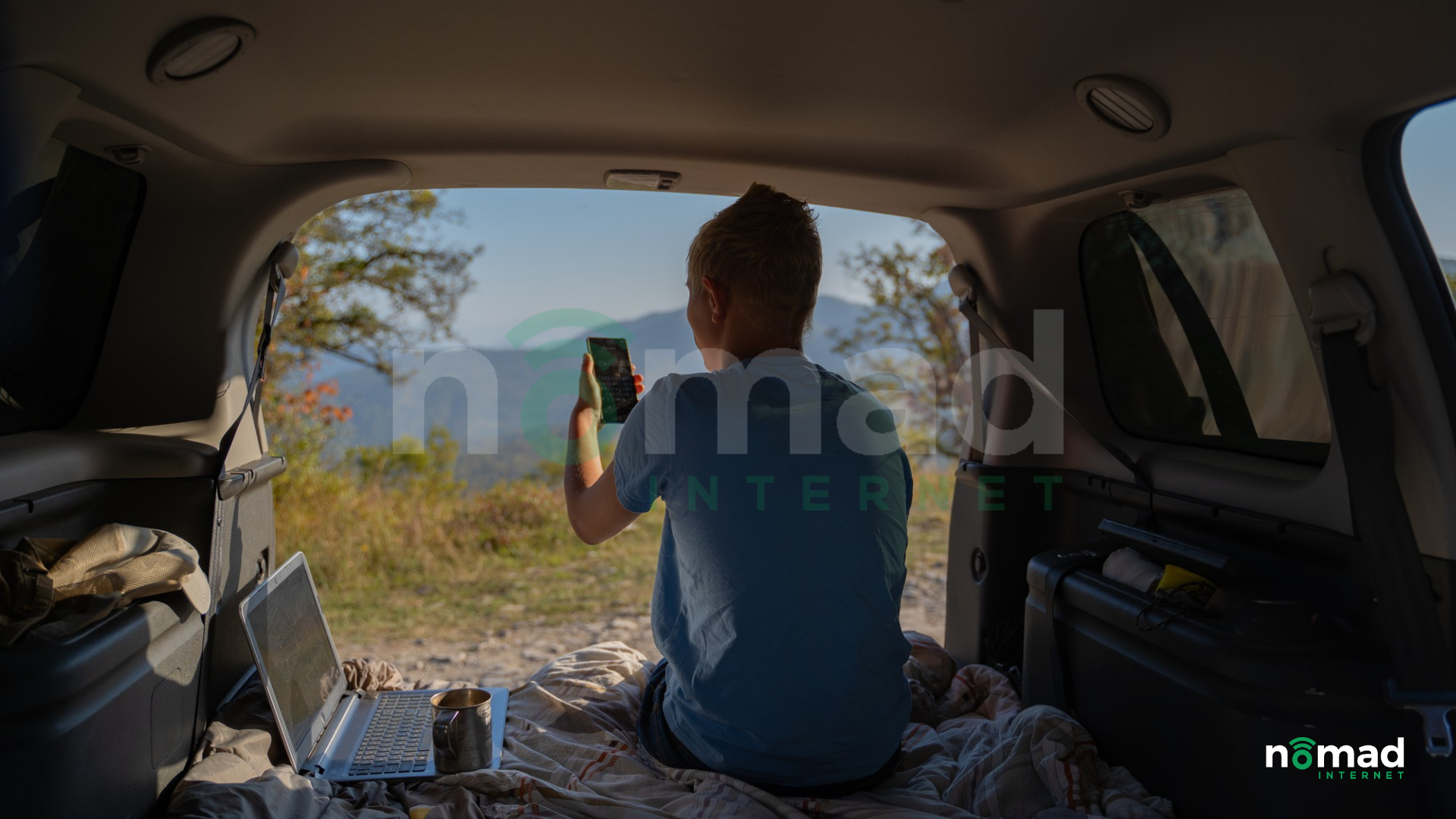When you’re on the road, it’s always better to have high-speed internet you can trust. And not just trust; you have to be prepared for every eventuality.

Most road trippers, full-time travelers, digital nomads would tell you a reliable high-speed internet connection is their primary concern, and things like food come second. It goes beyond keeping up with friends; it’s essential to earn a living in the new normal.
Here’s how to stay online while on the road:
1. Do Your Research: Before you hit the road, you first need to find out where you have internet and where you don’t (dead zones). During a road trip, it’s not uncommon to experience sudden data blackouts, and this could make your life a bit complicated if you are using GPS or actively asking an operator for directions. It’s crucial to research your route for data dead zones and contact your service provider for more detailed information.2. Analyze Your Date Usage: Your Data usage determines a lot from casual users to full-time travelers; everyone has different needs. Understanding what you need before starting your trip would improve your overall experience.
- Casual User: as mentioned earlier, a high-speed internet connection can be used to pay bills and handle other basic needs such as communication with friends via social media. Decide ahead of time if this is why you need an internet connection.
- Streaming: Whether you’re watching movies, shows, or vodcasts. Streaming can be a good way to keep your mind busy/active. This would be a reliable but not necessarily a spectacular internet connection as you can download to watch later on most streaming platforms. If you’re unsure about your internet connection, download your desired content before starting your trip.
- Casual Freelancer: Travelers tend to take their work with them while on the road, and some tasks like writing, editing might not require much data. It is better to know how much internet speed your task would require and be sure it is obtainable during your trip.
- High Data Users: Developers, Game Testers, Video Content Creators, Animators, among other high data users, require high-speed internet all the time and can’t afford to have anything less than spectacular.
4. Turn off Background Apps: You’d be surprised by the amount of data used by background apps. This doesn’t only use up your data but also your bandwidth. Turning off background apps and apps you don’t plan to use during your trip could prove to be extremely helpful when you’re experiencing a poor internet connection. Some apps you should consider turning off data connect to are;
- Social Media Apps you’re not actively using
- Cloud Backup Apps like Google Photos, OneDrive, and Dropbox
- Secondary Email apps
- Secondary Browsers
- Mobility apps and Location tracking apps.
Try this right now, even if you’re not on a road trip. You’ll thank us later.
5. Enable Browser Data Compression: Most browsers come with an in-built system that helps you compress website content (texts and images) before your device loads the page or receives an email.
6. Get a Travel Router: A portable router provides better Wi-Fi to phones, tablets, and other devices for folks who are not traveling with a laptop. More enhanced routers come with various capabilities, including the ability to amplify the signal from an existing Wi-Fi network for faster speeds on whatever device is being used. In addition, travelers can set their router up from their web browsers and place it on any spot that has good network coverage and allow it to perform its magic. Our Portable traveler router is perfect for travelers and rural residents looking for High-Speed Up to Unlimited Internet.
7. Get a Second Option: This goes hand in hand with getting a travel router. Having only one service provider on a trip is highly unrecommended, especially when you’re on a family trip or group trip. You should have at least two service providers if you can’t afford a travel router; having two mobile data providers might be a good fix.
8. Be Realistic: The Internet for travelers might be a big deal but, the best part is to expect that not all areas would have cellular coverage, and even the best of measures can sometimes not deliver as expected. Rather than let it ruin the moment, you can brace up for it and enjoy the company of those around you or find something pleasant to brood over. It’s better than worrying!
Following these steps is sure to improve your internet connection on the road. And it’s not just for when you’re on the road; some of these steps can help improve your internet connection whenever you are experiencing a poor internet connection or live in a rural area.
And on that note, the best piece of advice we can give you is to get Nomad Internet; it is designed for Travelers and Rural Residents and provides up to unlimited high-speed internet anywhere and everywhere. Set up your plan today with Nomad Internet!